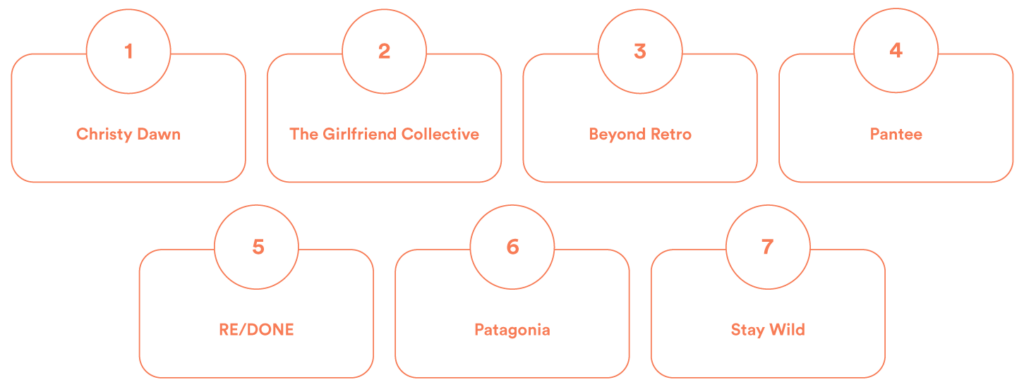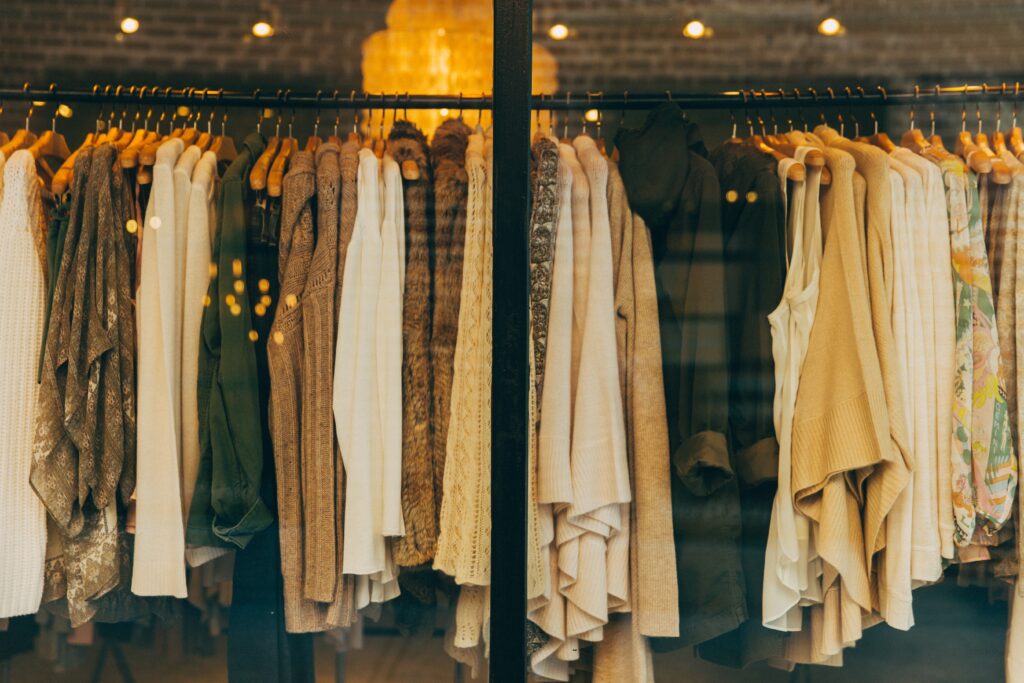We all like to look good. But the reality of the fashion industry is often quite troubling, especially from a zero waste point of view. The advent of fast fashion has meant that it’s now possible to buy, wear, and dispense with whole outfits at an almost unbelievable price point. The race to drive down prices in the fashion industry has been good news from a consumer point of view, but from a waste and resources standpoint it has been nothing short of a disaster.
For example, to create just one pair of jeans it requires about 1,800 gallons of water just to grow the cotton. That’s not even including the additional water and energy used in creating the cotton fabric, making the clothes, shipping them, and washing them over the course of their life.
Then there is the carbon footprint of clothes. It might be surprising to know that the global fashion industry is responsible for about 10% of all total global emissions. These harmful emissions are also expected to grow by 50% by 2030.
That’s far from all. About 20% of all wastewater worldwide comes from the dyeing and treatment of clothing fabric. Almost 90% of the total fiber used for clothing ends up being incinerated or disposed of in landfill. And less than 1% of all used clothing is recycled into new garments.
It’s clear we need to try and reduce the amount of waste and damage being caused by the fashion industry and make a move towards ethical fashion and more sustainable practices. But where do we start?
What is zero waste fashion?
Zero waste fashion is the idea of building a fashion industry that aims to minimize textile waste and value sustainability more than cheap price points. A move to a more sustainable fashion industry may be difficult but it is absolutely essential, as you will see below.
It will involve persuading both consumers and fashion brands to think more about the production process, fabric waste, and environmentally friendly materials. A move towards using sustainable fabrics, recycled materials, and a reduced environmental impact is required. But it can be done, as the seven brands below are proving. First, let’s take a look at the reason why zero waste fashion design and production is so necessary.
Why is zero waste fashion important?
As we made clear above, the impact the fashion industry is having on the planet is not up for debate. Fast fashion, increasingly globalized operations, and wasteful production processes are taking their toll. Yet, unlike some other industries such as energy or even food, the practices of the fashion industry seem to almost go unnoticed.
A greater sense of understanding will help to encourage a zero-waste to landfill attitude across the fashion industry, and also encourage and support smaller and more local businesses to provide more ethical clothes. Here are some slow fashion brand designers and zero waste clothing brands already doing just that.
Top 7 zero waste fashion brands

Christy Dawn
Specializing in classic designs with timeless style. Christy Dawn uses deadstock fabric left behind by other brands. These kinds of regenerative processes are matched by their use of organic materials to create clothes that are healthy for the planet and the body.
The Girlfriend Collective
Offering an impressive range of ethical clothing made using recycled materials, this brand gets creative with old plastic bottles, fabric scraps, and even fishing nets to make whole new items. They also specialize in active wear, meaning you can be zero waste even when you’re working out.
Beyond Retro
Another brand taking old and unused clothes and shining a whole light on their quality and style. With only 1% of clothing being recycled or reused, brands like Beyond Retro are giving you the chance to rescue classic and vintage pieces from landfill, while also standing out from the crowd at the same time. With everything from 50s to 90s clothes available, choose your era and vintage style.
Pantee
It’s all very well wearing vintage pieces but not many of us want to wear vintage underwear. Luckily, there is another alternative. This eco-friendly company makes comfortable and sustainable underwear using deadstock fabric and organic cotton. It’s all small batch and designed to mix and match, and they also plant a tree for every order received.
RE/DONE
As the name suggests, this is a company that specializes in selling upcycled products, which is one of the easiest and most sustainable ways of buying clothes. Vintage clothing is not just zero waste, but can also be a stylish way to dress, especially when you’re reusing celebrated brands and classic designs.
Patagonia
All of the above small batch and local manufacturers are true pioneers but what about the larger brands? Are they getting the message about zero waste clothing? Well, Patagonia might be showing them how to do it. Renowned for making durable outerwear, the brand is making its way towards zero waste clothing. In the meantime, their Worn Wear collection aims to extend the life of some of its garments by allowing customers to return old items via a take-back scheme in exchange for a discount off new products. These are then repurposed and resold with some unique additions.
Stay Wild
As mentioned above, one of the main issues with fast fashion is the amount of material that ends up in the ocean. Stay Wild is attempting to directly address the issue, creating garments made from ocean plastic to make its swimwear. All their designs are ethical, stylish, and provide UV protection. There’s also a range of T-shirts and towels.
From upcycling and offering second hand clothes to using deadstock fabrics and low waste production techniques, there are plenty of ways for zero waste fashion brands to make an impact. And make an impact they must, as the industry needs a root and branch rethink. We can’t continue to produce and consume the way we are. More emphasis on slow fashion, ethical design practice, and an effort to reduce carbon emissions is required. And the above seven brands are showing how it can be done.
To find out more about Zero Waste products in both business and lifestyle, check out our blog.

